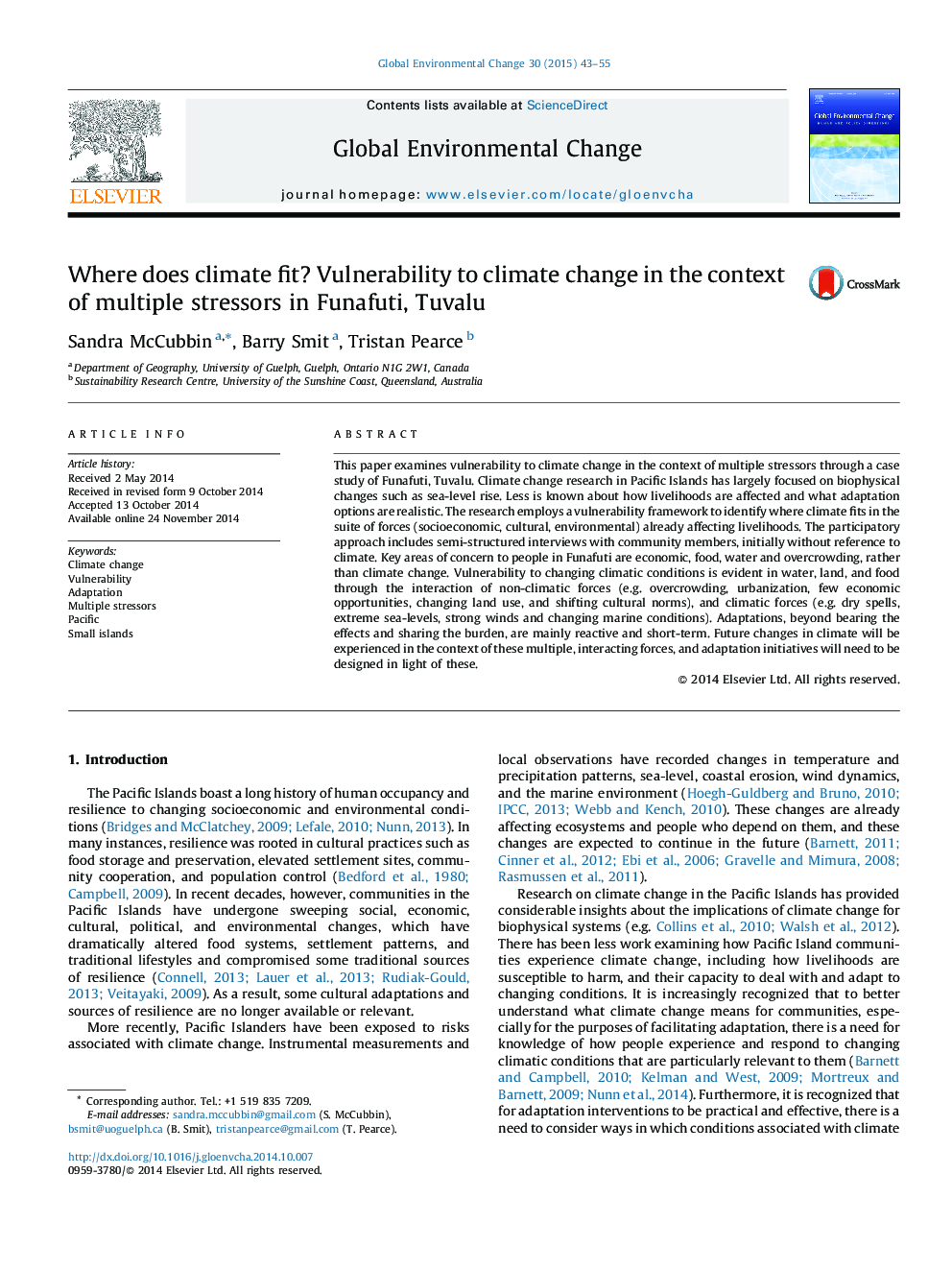| Article ID | Journal | Published Year | Pages | File Type |
|---|---|---|---|---|
| 1054668 | Global Environmental Change | 2015 | 13 Pages |
•Climate change in Funafuti, Tuvalu is experienced in context of multiple stressors.•People most concerned about economic issues, food, water and overcrowding.•Climatic forces include dry spells, flooding, erosion, changing marine conditions.•Synergistic forces produce climate vulnerability in water, land and food security.•Adaptations to date are mainly reactive and short-term.
This paper examines vulnerability to climate change in the context of multiple stressors through a case study of Funafuti, Tuvalu. Climate change research in Pacific Islands has largely focused on biophysical changes such as sea-level rise. Less is known about how livelihoods are affected and what adaptation options are realistic. The research employs a vulnerability framework to identify where climate fits in the suite of forces (socioeconomic, cultural, environmental) already affecting livelihoods. The participatory approach includes semi-structured interviews with community members, initially without reference to climate. Key areas of concern to people in Funafuti are economic, food, water and overcrowding, rather than climate change. Vulnerability to changing climatic conditions is evident in water, land, and food through the interaction of non-climatic forces (e.g. overcrowding, urbanization, few economic opportunities, changing land use, and shifting cultural norms), and climatic forces (e.g. dry spells, extreme sea-levels, strong winds and changing marine conditions). Adaptations, beyond bearing the effects and sharing the burden, are mainly reactive and short-term. Future changes in climate will be experienced in the context of these multiple, interacting forces, and adaptation initiatives will need to be designed in light of these.
